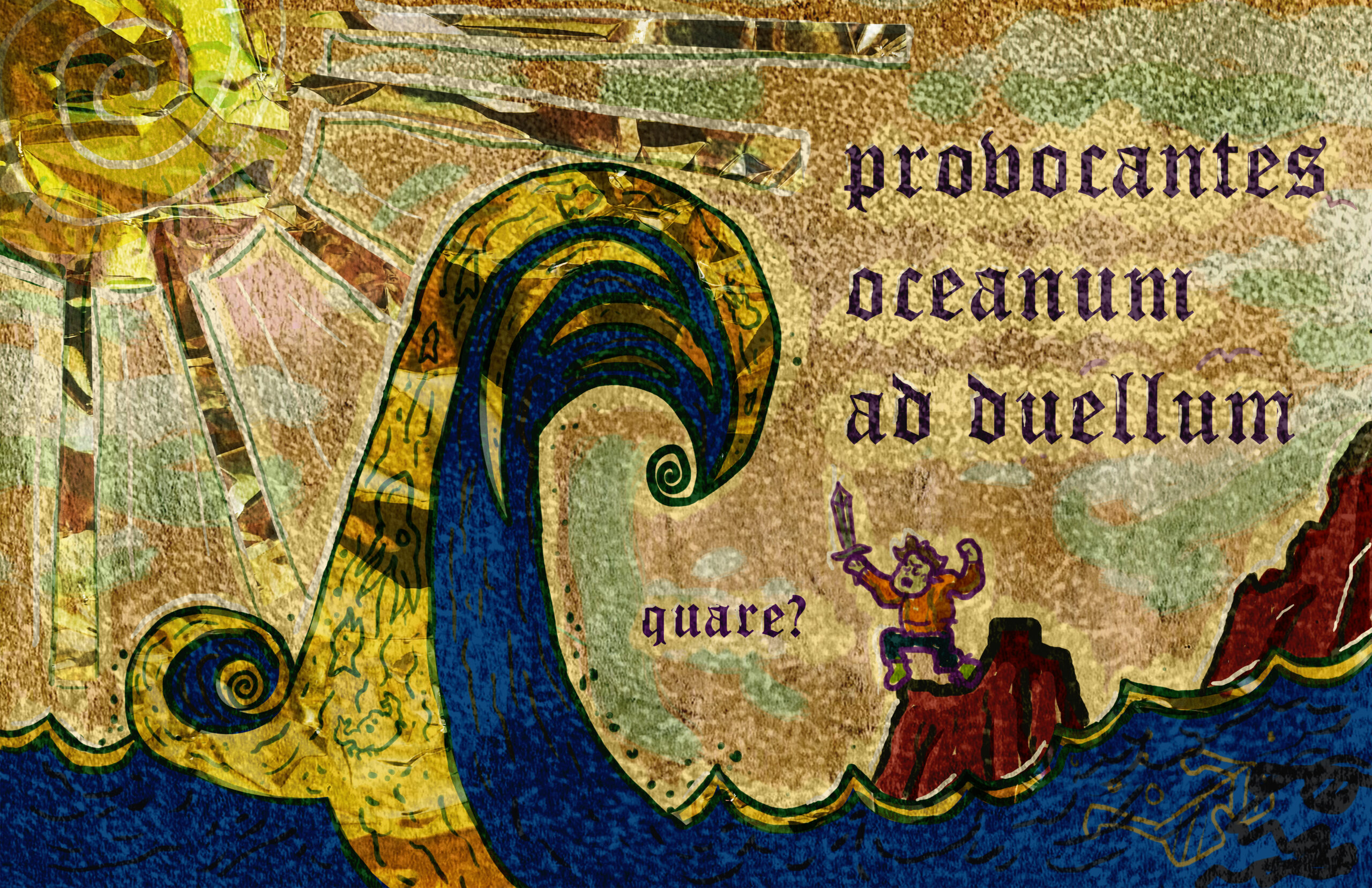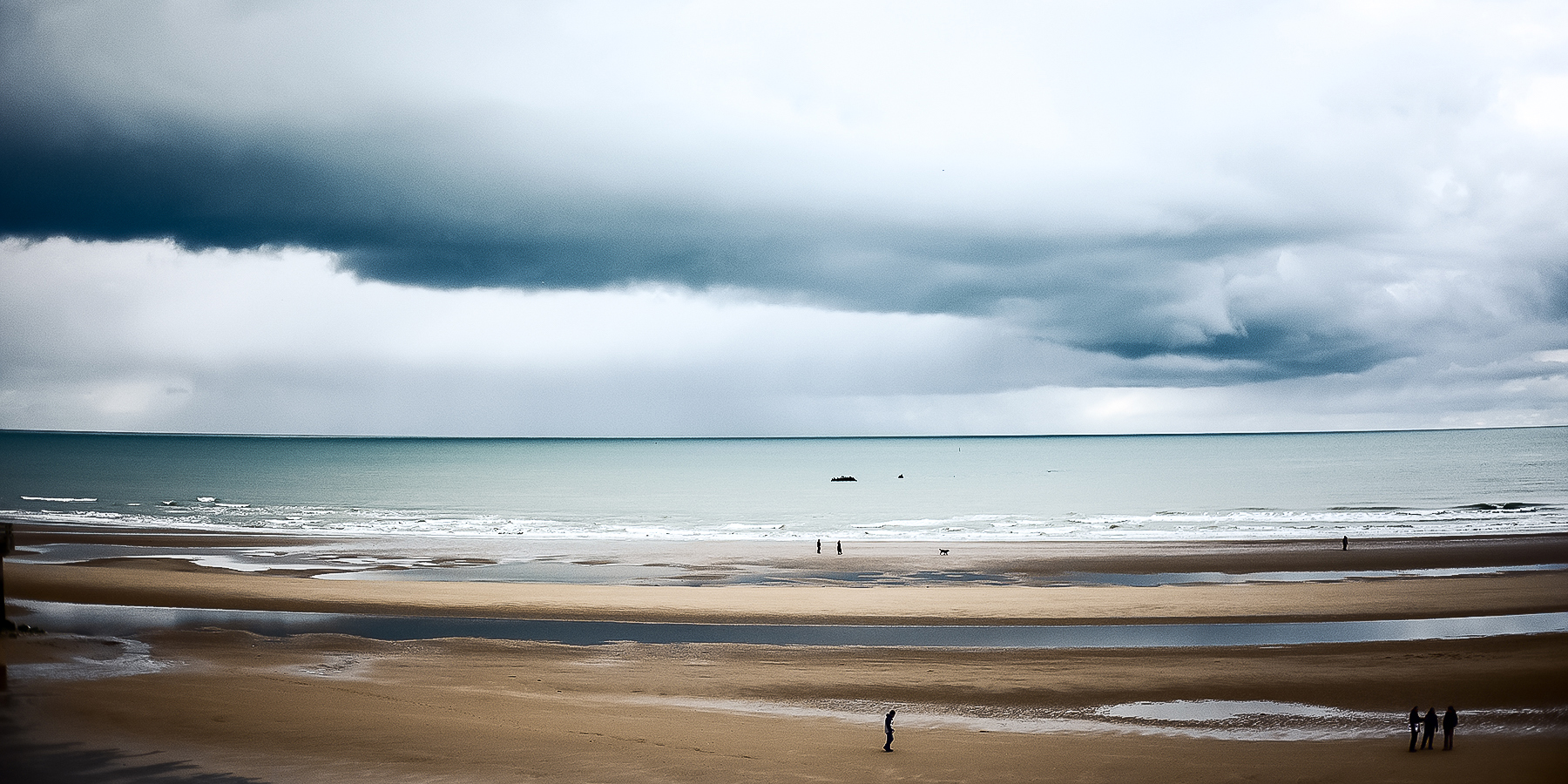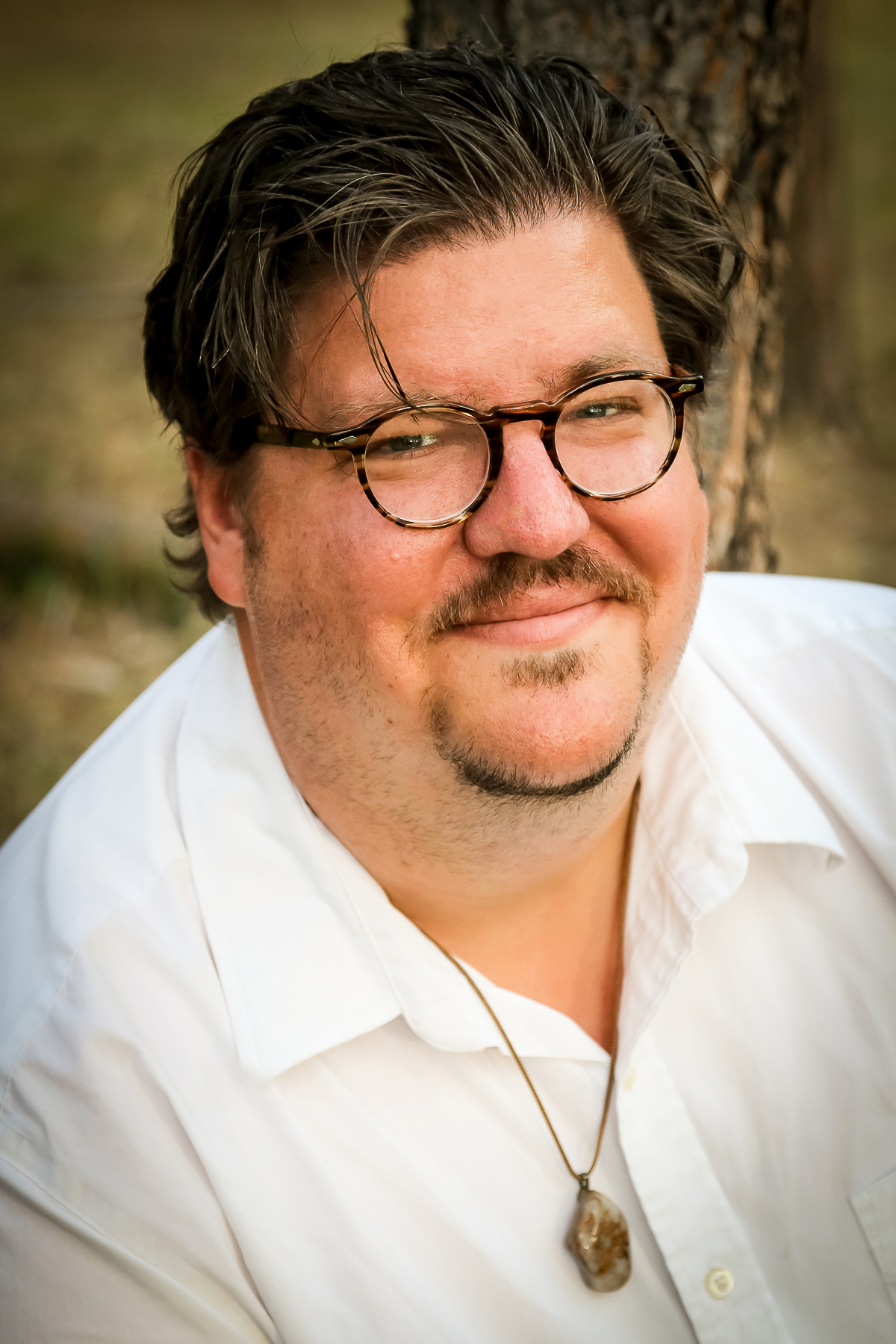Cultivating Fatherhood will be space made for the dads among us who love their kids and yet know that the adventure of parenting, with all its joys and beauty, can also be a perilous one. Make no mistake, showing up for your kids is beautiful, rewarding, hard, holy, brave work. My efforts are here intended to provide encouragement and understanding that equips us for our responsibility to the amazing beings who call us “dad.”
![]()
“I’ll show that ocean!”
This thought genuinely went through my teenage brain as I set myself up to do one of the most dangerous things I’ve ever done in my life. It happened on the trip to the Oregon coast that the youth group from the church I grew up in would take each year. It was my favorite trip to go on because I got to see what Colorado boys don’t regularly get to see: endless expanses of (surprisingly cold) salt water. The cold didn’t deter me, though, and I plunged right in, making the most of this opportunity—and, in my ignorance, feeling a bit of ownership over this ageless marvel.
The portion of the Oregon coast that we visited that day had long piles of rock that extended far out into the waters, and waves would crash upon them Fantasia-style. I was drawn by wonder to be a part of their dance—and perhaps by adolescent hubris. A few of the youths and I climbed across the jagged rocks toward their farthest point, but my memory reveals the others (wisely) decided to cease their ingress.
Historically, I have not been a classically “brave” person, but that day I had two scoops of pluck, which sent me clambering across the rocks nearly to their end. Below me now was a sloping, jagged rock face covered in little shells—and then the ocean beneath that. As I enjoyed this exhilarating thrill, a wave rolled in and smashed against the other side of the rock. The water shot over and covered me, and the force was such that my sunglasses got washed off my face (and for all I know have since become a treasured item in the hoard of a crab or a status accessory for a very cool-looking shark). I was mad. I felt embarrassed and cheated, and in my head—for real—I said, “I’ll show that ocean! I’m gonna take this next wave because it took my glasses!”

I had just “bravely” challenged the Pacific Ocean to a duel.
As I waited with the steely demeanor of a young Clint Eastwood for the ocean to “draw,” my mind drifted to something I had heard earlier that trip about “every seventh wave is the biggest.” I’ve since learned that it’s not always so simple—however, in that moment my mind was doing the math. And as the ocean swelled and appeared to raise its entirety up over the rock face that I had made my arrogant stand on, the count said “seven,” and I said “Uh-oh.”
Though I’ve never been a “jock,” I imagine that if I had joined the high school football team, a wall of linebackers against my unpadded form may have felt like what came next. The ocean slammed into me with such force that my feet flew out from under me and my body was violently dislodged from the place I had so proudly stood moments before. With all the sense I had in my immersed being I grabbed for the rock and slammed my fingers firmly into its sharp jags. My legs slid down the side of the rock, where they were cut up by the sharp edges or shells or whatever else nature had found to festoon the bottom few feet above the waterline. As painful as it was, their little snags caught me and denied the ocean below the chance to fully embrace me to its foamy bosom. The wave that knocked me down ultimately passed over me like the angel of death when encountering lambs’ blood on a doorpost, and my life was spared. My legs, however, looked very much like those door posts as I limped back. The duel was over. I had lost. Thankfully, out of that ordeal, all that was really lost was a pair of (very cool) sunglasses, some pride, some blood, and a few layers of skin. Two decades later, my knees still bear the faint badges of that battle. But for what? What was my “why”?
Merriam-Webster’s dictionary defines courage as “mental or moral strength to venture, persevere, and withstand danger, fear, or difficulty.” I believe there is a difference between mere “bravery” and “courage,” but to me, the dictionary offers a less-than-satisfying distinction between the two. So, if you’ll permit me, I would like to define “bravery” as “the capacity for someone who knows the dangers to still enter into that situation.” By this definition “braveness” is a morally neutral condition, in that you can be brave for good reasons, bad reasons, and reasons with no moral consequence at all. There will be no memorial erected on the rock where I fell telling the tale of Adam’s duel with the ocean for the honor of his sunglasses. My “why” was not noble; there was no “moral strength” present. I was embarrassed and angry and did something foolish as a result. What I did might meet a narrow definition of “brave,” but it was certainly not “courageous.”
For an example of courage, we might look to the early Christian martyrs. One can “bravely” stick their head into a lion’s mouth at a circus, but the Christians in the early parts of the church’s history knew that speaking of Jesus might indeed land them in the jaws of such a beast. They did not seek out such an encounter, yet they knew that the life of love they were living might make such a thing as this a reality—and for many, it did. And now, at the Colosseum in Rome—symbolic of the many similar arenas in which Christians met their end—a memorial marked with a cross reads:
“The amphitheater, one consecrated to triumphs, entertainments, and the impious worship of pagan gods, is now dedicated to the sufferings of the martyrs purified from impious superstitions.” [1]
Their “why” was indeed noble and of “moral strength,” and now this landmark has undergone a baptism of sorts, from declaring the glory of Rome to memorializing the witness of those who gave testimony to the glory of God with their dying breath.
Changing from one thing to another indeed requires bravery. As fathers, we are given the opportunity to guide our children across life’s thresholds as they bravely develop from one stage to another. We may think these are small feats, but for our children in these stages of life, things like a baby trying new foods, a toddler learning to use the big boy (or girl) potty, or a child learning how to swim are monumental achievements.
Now that I have children of my own (though none are teenagers yet), I have indeed smiled at their bravery on the basketball court and have even seen their getting back up after falling down as “courageous.” I’ve seen them brave social situations and the unknown of the natural world, and that makes me very proud. But I am most pleased when they display acts of courage—stepping into situations they believe are difficult, or even potentially dangerous, because of virtuous reasons.
I love this quote from Faramir in J.R.R. Tolkien’s The Two Towers:
“War must be, while we defend our lives against a destroyer who would devour all; but I do not love the bright sword for its sharpness, nor the arrow for its swiftness, nor the warrior for his glory. I love only that which they defend.”
The “why” will determine the difference between bravery and courage as our children cross the thresholds of their lives. And we, as fathers, will reinforce the virtue of courage by what we model and what we celebrate. Yes—absolutely—cheer from the bleachers at their sporting events. But also take their face in your hands and look them in their tear-stained eyes when they stood up for a vulnerable kid at school and got beat up for it. See them when they climb higher than you’d like them to climb in that tree, and see their courage when they struggle with social anxiety but still walk into school or church anyway. Post their report cards on the fridge with pride. But also honor their courageous acts of struggling to trust God on their own journey of faith.
Bravery can be a good thing. But courage is eternally better.
![]()
[1] As translated by Bryan M. Litfin and cited by Wikipedia’s article about the Colosseum.
The featured image, “Beach Stroll,” is courtesy of Sam Keyes and is used with his kind permission for Cultivating.
The featured artwork is courtesy of Adam Nettesheim and is used with his kind permission for Cultivating.
Adam Nettesheim is Director of Fellowship for The Cultivating Project, and a columnist for Cultivating magazine. Through writing and illustrating, Adam seeks to pull on the golden thread that leads us Homeward. Adam is a ‘Multi-Media Specialist’ by day at a municipality in Colorado but his most important (and favorite) work is husband to his wife Sarah and father to his 3 children. His writing (and a few other things) can be found at https://adamrnettesheim.com/.
Leave a Reply
A Field Guide to Cultivating ~ Essentials to Cultivating a Whole Life, Rooted in Christ, and Flourishing in Fellowship
Enjoy our gift to you as our Welcome to Cultivating! Discover the purpose of The Cultivating Project, and how you might find a "What, you too?" experience here with this fellowship of makers!


Add a comment
0 Comments